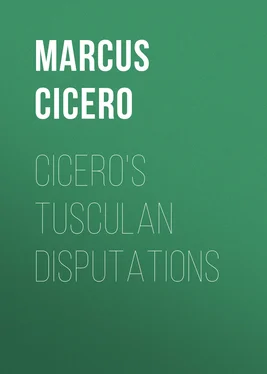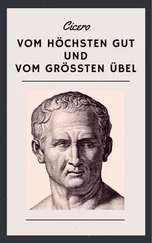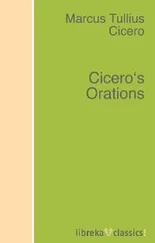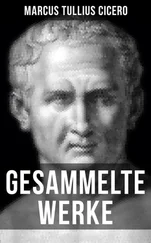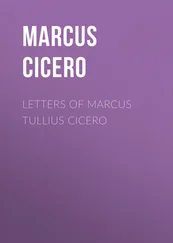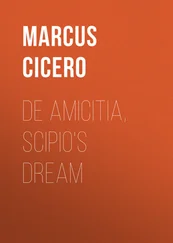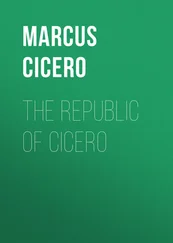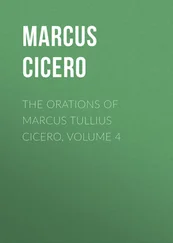Marcus Cicero - Cicero's Tusculan Disputations
Здесь есть возможность читать онлайн «Marcus Cicero - Cicero's Tusculan Disputations» — ознакомительный отрывок электронной книги совершенно бесплатно, а после прочтения отрывка купить полную версию. В некоторых случаях можно слушать аудио, скачать через торрент в формате fb2 и присутствует краткое содержание. Издательство: Иностранный паблик, Жанр: foreign_antique, Философия, foreign_edu, на английском языке. Описание произведения, (предисловие) а так же отзывы посетителей доступны на портале библиотеки ЛибКат.
- Название:Cicero's Tusculan Disputations
- Автор:
- Издательство:Иностранный паблик
- Жанр:
- Год:неизвестен
- ISBN:нет данных
- Рейтинг книги:3 / 5. Голосов: 1
-
Избранное:Добавить в избранное
- Отзывы:
-
Ваша оценка:
- 60
- 1
- 2
- 3
- 4
- 5
Cicero's Tusculan Disputations: краткое содержание, описание и аннотация
Предлагаем к чтению аннотацию, описание, краткое содержание или предисловие (зависит от того, что написал сам автор книги «Cicero's Tusculan Disputations»). Если вы не нашли необходимую информацию о книге — напишите в комментариях, мы постараемся отыскать её.
Cicero's Tusculan Disputations — читать онлайн ознакомительный отрывок
Ниже представлен текст книги, разбитый по страницам. Система сохранения места последней прочитанной страницы, позволяет с удобством читать онлайн бесплатно книгу «Cicero's Tusculan Disputations», без необходимости каждый раз заново искать на чём Вы остановились. Поставьте закладку, и сможете в любой момент перейти на страницу, на которой закончили чтение.
Интервал:
Закладка:
Marcus Tullius Cicero
Cicero's Tusculan Disputations / Also, Treatises On The Nature Of The Gods, And On The Commonwealth
3 NOTE
The greater portion of the Republic was previously translated by Francis Barham, Esq., and published in 1841. Although ably performed, it was not sufficiently close for the purpose of the “Classical Library,” and was therefore placed in the hands of the present editor for revision, as well as for collation with recent texts. This has occasioned material alterations and additions.
The treatise “On the Nature of the Gods” is a revision of that usually ascribed to the celebrated Benjamin Franklin.
7 THE TUSCULAN DISPUTATIONS
INTRODUCTION
In the year a.u.c. 708, and the sixty-second year of Cicero’s age, his daughter, Tullia, died in childbed; and her loss afflicted Cicero to such a degree that he abandoned all public business, and, leaving the city, retired to Asterra, which was a country house that he had near Antium; where, after a while, he devoted himself to philosophical studies, and, besides other works, he published his Treatise de Finibus, and also this treatise called the Tusculan Disputations, of which Middleton gives this concise description:
“The first book teaches us how to contemn the terrors of death, and to look upon it as a blessing rather than an evil;
“The second, to support pain and affliction with a manly fortitude;
“The third, to appease all our complaints and uneasinesses under the accidents of life;
“The fourth, to moderate all our other passions;
“And the fifth explains the sufficiency of virtue to make men happy.”
It was his custom in the opportunities of his leisure to take some friends with him into the country, where, instead of amusing themselves with idle sports or feasts, their diversions were wholly speculative, tending to improve the mind and enlarge the understanding. In this manner he now spent five days at his Tusculan villa in discussing with his friends the several questions just mentioned. For, after employing the mornings in declaiming and rhetorical exercises, they used to retire in the afternoon 8into a gallery, called the Academy, which he had built for the purpose of philosophical conferences, where, after the manner of the Greeks, he held a school, as they called it, and invited the company to call for any subject that they desired to hear explained, which being proposed accordingly by some of the audience became immediately the argument of that day’s debate. These five conferences, or dialogues, he collected afterward into writing in the very words and manner in which they really passed; and published them under the title of his Tusculan Disputations, from the name of the villa in which they were held.
BOOK I.
ON THE CONTEMPT OF DEATH
I. At a time when I had entirely, or to a great degree, released myself from my labors as an advocate, and from my duties as a senator, I had recourse again, Brutus, principally by your advice, to those studies which never had been out of my mind, although neglected at times, and which after a long interval I resumed; and now, since the principles and rules of all arts which relate to living well depend on the study of wisdom, which is called philosophy, I have thought it an employment worthy of me to illustrate them in the Latin tongue, not because philosophy could not be understood in the Greek language, or by the teaching of Greek masters; but it has always been my opinion that our countrymen have, in some instances, made wiser discoveries than the Greeks, with reference to those subjects which they have considered worthy of devoting their attention to, and in others have improved upon their discoveries, so that in one way or other we surpass them on every point; for, with regard to the manners and habits of private life, and family and domestic affairs, we certainly manage them with more elegance, and better than they did; and as to our republic, that our ancestors have, beyond all dispute, formed on better customs and laws. What shall I say of our military affairs; in which our ancestors have been most eminent in valor, and still more so 9in discipline? As to those things which are attained not by study, but nature, neither Greece, nor any nation, is comparable to us; for what people has displayed such gravity, such steadiness, such greatness of soul, probity, faith—such distinguished virtue of every kind, as to be equal to our ancestors. In learning, indeed, and all kinds of literature, Greece did excel us, and it was easy to do so where there was no competition; for while among the Greeks the poets were the most ancient species of learned men—since Homer and Hesiod lived before the foundation of Rome, and Archilochus 1 1 Archilochus was a native of Paros, and flourished about 714-676 b.c. His poems were chiefly Iambics of bitter satire. Horace speaks of him as the inventor of Iambics, and calls himself his pupil. Parios ego primus Iambos Ostendi Latio, numeros animosque secutus Archilochi, non res et agentia verba Lycamben. Epist. I. xix. 25. And in another place he says, Archilochum proprio rabies armavit Iambo—A.P. 74.
was a contemporary of Romulus—we received poetry much later. For it was about five hundred and ten years after the building of Rome before Livius 2 2 This was Livius Andronicus: he is supposed to have been a native of Tarentum, and he was made prisoner by the Romans, during their wars in Southern Italy; owing to which he became the slave of M. Livius Salinator. He wrote both comedies and tragedies, of which Cicero (Brutus 18) speaks very contemptuously, as “Livianæ fabulæ non satis dignæ quæ iterum legantur”—not worth reading a second time. He also wrote a Latin Odyssey, and some hymns, and died probably about 221 b.c.
published a play in the consulship of C. Claudius, the son of Cæcus, and M. Tuditanus, a year before the birth of Ennius, who was older than Plautus and Nævius.
II. It was, therefore, late before poets were either known or received among us; though we find in Cato de Originibus that the guests used, at their entertainments, to sing the praises of famous men to the sound of the flute; but a speech of Cato’s shows this kind of poetry to have been in no great esteem, as he censures Marcus Nobilior for carrying poets with him into his province; for that consul, as we know, carried Ennius with him into Ætolia. Therefore the less esteem poets were in, the less were 10those studies pursued; though even then those who did display the greatest abilities that way were not very inferior to the Greeks. Do we imagine that if it had been considered commendable in Fabius, 3 3 C. Fabius, surnamed Pictor, painted the temple of Salus, which the dictator C. Junius Brutus Bubulus dedicated 302 b.c. The temple was destroyed by fire in the reign of Claudius. The painting is highly praised by Dionysius, xvi. 6.
a man of the highest rank, to paint, we should not have had many Polycleti and Parrhasii? Honor nourishes art, and glory is the spur with all to studies; while those studies are always neglected in every nation which are looked upon disparagingly. The Greeks held skill in vocal and instrumental music as a very important accomplishment, and therefore it is recorded of Epaminondas, who, in my opinion, was the greatest man among the Greeks, that he played excellently on the flute; and Themistocles, some years before, was deemed ignorant because at an entertainment he declined the lyre when it was offered to him. For this reason musicians flourished in Greece; music was a general study; and whoever was unacquainted with it was not considered as fully instructed in learning. Geometry was in high esteem with them, therefore none were more honorable than mathematicians. But we have confined this art to bare measuring and calculating.
Интервал:
Закладка:
Похожие книги на «Cicero's Tusculan Disputations»
Представляем Вашему вниманию похожие книги на «Cicero's Tusculan Disputations» списком для выбора. Мы отобрали схожую по названию и смыслу литературу в надежде предоставить читателям больше вариантов отыскать новые, интересные, ещё непрочитанные произведения.
Обсуждение, отзывы о книге «Cicero's Tusculan Disputations» и просто собственные мнения читателей. Оставьте ваши комментарии, напишите, что Вы думаете о произведении, его смысле или главных героях. Укажите что конкретно понравилось, а что нет, и почему Вы так считаете.
